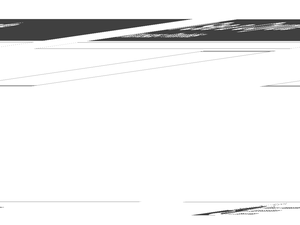California Academy of Science
Our Hungry Planet: Design Thinking Challenge
Scholars investigate an issue associated with food systems and design their own solutions. Working collaboratively, they follow each step in the design process to complete the 10th lesson of the 13-part Our Hungry Planet series.
California Academy of Science
Food for Thought: Defining a Problem to Find a Solution
Scholars approach a problem trying to plan a meal for a class party. They learn about the restrictions and must decide what information they need to plan the meal. The first lesson in a 13-part unit on Our Hungry Planet encourages...
American Museum of Natural History
The Amazing Mundo
Rocks and minerals are great on their own, but they also turn into some pretty amazing stuff! An online lesson explains the different types of materials we get from rocks and minerals, including glass, plastic, and coins. An embedded...
California Academy of Science
Sustainable Food Solutions: Weighing the Pros and Cons
A growing demand for sustainable food systems comes from schools and even some cities. So what are some solutions? Scholars consider four different ways to approach sustainable food solutions and list the pros and cons of each. The fifth...
California Academy of Science
Rapid Brainstorming: How Can We Improve Our Global Food System?
In 2018, the average fast food burger cost $2.64 while a salad averaged $4.14. Does the price difference matter to public health? Scholars consider that question and others in a brainstorming session about improving our global food...
California Academy of Science
Exploring the Impacts of Feeding the World
Approximately 50 percent of people in the world who are chronically hungry work in agriculture. While it seems counter-intuitive, the farther you live from a farm, the more food options are available. Scholars explore concepts related to...
Curated OER
Plate and Planet
Students investigate the health hazards of modern agriculture and how we can choose better food options. In this healthy eating lesson, students identify different indigenous people in photographs and discuss what they might eat....
Curated OER
Perspectives on Animals
Engage your class in a discussion about humane treatment of animals by recognizing the basic rights of all races, religions, classes, etc. Have volunteers stand on a milk crate without shoes until they become uncomfortable as an example...
Curated OER
Soil: Food Mapping
Learners examine the concept of food mapping . In this agriculture lesson, students explore food and agriculture systems in the United States in the past and today. Learners complete food mapping activities.
Curated OER
Biomes of the World (and Canada)
Young scholars explore environments by analyzing food chains. In this biome identification instructional activity, students define a list of environmental vocabulary terms such as tundra, rain-forest and desert. Young scholars create a...
Curated OER
I See a Coyote
Students role-play coyotes looking for natural resources. In this natural resources lesson, students examine the relationship between animal life and the environment. Students play a game that demonstrates how natural...
Curated OER
Solar System Tourist Bureau
Students, working in teams, role-play as advertising agents creating ad campaigns for a planet in the solar system. They design commercials for video, Hyperstudio, or Web pages. The activity includes research, all the production stages,...
Curated OER
Reduce Reuse Recycle
Students discover methods that can save the planet by recycling. In this sustainable planet lesson, students read The Berenstein Bears Don't Pollute Anymore, and practice memorizing the 3 R's. Students write commitment...
Curated OER
Lights Light Up My Life
Students conduct an investigation. In this energy conservation lesson, students observe and make predictions about fluorescent and incandescent light bulbs. Working in groups, students conduct an investigation to compare the two light...
Curated OER
The Way a Tree Works
Students explore nature by conducting botany experiments. In this plant life lesson, students define the necessary resources for a plant to thrive on our planet while defining scientific vocabulary terms. Students utilize different plant...
Curated OER
Everyone Up!
Students examine various agriculture careers, both direct and indirect, related to crop production and distribution. In this food production lesson, students role play the processing chain in which crops move from producer to processor...
Curated OER
Conservation of Energy
Fifth graders examine their use of energy over a certain time period. They come up with a plan to reduce their energy consumption and carbon footprint. Groups of learners complete a chart with three columns; energy-using events, the form...
Curated OER
Agriculture and Food
Students discuss the foods they eat and why they eat them. In this nutrition lesson, students determine what foods people might eat in Cyprus and create a traditional meal tasting five traditional recipes of Cyprus set up like...
Curated OER
Environmental Issues
Students investigate the natural resources on earth by reading a book in class. In this environmental lesson, students read select pages from the book Alaska by Rebecca Stefoff and discuss their feelings on the material. ...
Curated OER
It's A Jungle in Here!
Fifth graders research rainforest destruction. In this geography and ecology lesson, 5th graders work as a group to research the effects of logging, farming, and mining on the rainforest. Students gather and display data and information...
Teach Engineering
Come On Over Rover
Introduce your class to the steps that occur in the manufacturing of parts, the assembly, and the testing of a Mars rover. Pupils learn about fabrication techniques and tolerances in the manufacturing process.
Curated OER
Understanding Biodiversity Via Ecological Footprints
Sixth graders investigate the ways in which human beings impact the environment and ecology through the calculation of their own ecological footprint, discussion questions pertaining to biodiversity and potential imbalance hazards, and...






















